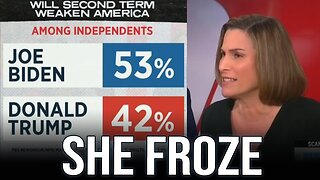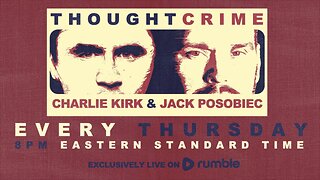Donizetti: Anna Bolena - Act I | Netrebko, Garanča - Pidò (Wiener Staatsoper 2011)
Composer: Gaetano Donizetti
Librettist: Felice Romani after the play Henry VIII by Marie-Joseph de Chenier (1791) and the play Anna Bolena by Alessandro Pepoli (1788)
Premiere: 26 December 1830 - Milan (Teatro Carcano)
Language: Italian
Subtitles: Italian, English, German, French,Spanish (Click on CC to switch on the subtitles).
Act II: https://rumble.com/v4qnzqw-donizetti-anna-bolena-act-ii-netrebko-garana-pid-wiener-staatsoper-2011.html
Anna Bolena is a tragic opera (tragedia lirica) in two acts composed by Gaetano Donizetti. Felice Romani wrote the Italian libretto after Ippolito Pindemonte's Enrico VIII ossia Anna Bolena and Alessandro Pepoli's Anna Bolena, both recounting the life of Anne Boleyn, the second wife of England's King Henry VIII. It is one of four operas by Donizetti dealing with the Tudor period in English history—in composition order, Il castello di Kenilworth (1829), Anna Bolena (1830), Maria Stuarda (named for Mary, Queen of Scots, it appeared in different forms in 1834 and 1835), and Roberto Devereux (1837, named for a putative lover of Queen Elizabeth I of England). The leading female characters of the latter three operas are often referred to as "the Three Donizetti Queens."
Cast & Characters:
Enrico VIII - Ildebrando D'Arcangelo
Anna Bolena - Anna Netrebko
Giovanna Seymour - Elina Garanča
Lord Riccardo Percy - Francesco Meli
Smeton - Elisabeth Kulman
Sir Hervey - Peter Jelosits
Lord Rochefort - Dan Paul Dumitrescu
Wiener Staatsoper Orchestra & Chorus
Conductor: Evelino Pidò
Chorus Masters: Thomas Lang, Martin Schebesta
Stage Director: Eric Genovese
Set Designers: Jacques Gabel, Claire Sternberg
Costume Designer: Luisa Spinatelli
Recorded Live in 2011
Anna Bolena premiered on 26 December 1830 at the Teatro Carcano in Milan, to "overwhelming success." Weinstock notes that only after this success did Donizetti's teacher, Johann Simon Mayr, "address his former pupil as Maestro." The composer had begun "to emerge as one of three most luminous names in the world of Italian opera", alongside Bellini and Rossini. After the rise of verismo, the opera was performed infrequently.
Rarely seen in the first half of the 20th century, it was revived more frequently after World War II. On 30 December 1947, the opera was performed at Gran Teatre del Liceu in Barcelona, to mark that theatre's centennial (it had opened in 1847 with Anna Bolena). The cast was Sara Scuderi as Anna, Giulietta Simionato as Jane Seymour and Cesare Siepi as Henry VIII. In April 1957, the opera was revived at La Scala for Maria Callas (one of the seven performances was recorded) in a lavish production directed by Luchino Visconti, with Giulietta Simionato as Jane Seymour. It proved to be one of Callas' greatest triumphs. In the revival the following year, Callas and Simionato repeated their roles and were joined by Siepi as the king, this role having been sung by Nicola Rossi-Lemeni at the premiere the year before. Several famous modern sopranos have lent their voices to the role, including Leyla Gencer, Montserrat Caballé, Marisa Galvany, Renata Scotto, Edita Gruberova and Mariella Devia. In the 1970s, Beverly Sills earned a considerable degree of fame when she appeared in all three of Donizetti's "Tudor" operas at the New York City Opera. And Anna was one of the last new roles performed by Dame Joan Sutherland, at San Francisco Opera in 1984.
SYNOPSIS
Time: 1536
Place: Windsor and London
ACT I - Windsor Castle
The courtiers predict doom for Anna Bolena. Giovanna Seymour, one of her ladies-in-waiting has caught the eye of King Enrico VIII. Alone in her apartments, Anna asks the court musician, Smeton, to play for her. The sadness of his song upsets the queen (with whom he is in love) and she laments the emptiness of her life. Giovanna begins to suspect that Anna knows about her and the king. When the king enters she informs him she wishes to end their meetings. He tells he, that she will soon have no rival for his affections. Giovanna is adamant but the angry Enrico accuses her of loving the throne, not its occupant. She is consumed with remorse.
The king sets about orchestrating Anna's ruin by arranging for her to come across her former lover, Lord Riccardo Percy, during a hunt. Percy confesses his love for Anna, but she demands that they do not see each other again. When Percy draws his sword to kill himself, Smeton misinterprets his actions and draws his own weapon. As Anna faints, Enrico bursts in and his wife is compromised. The king assumes the worst, and demands that Anna be tried.
-
 1:05:27
1:05:27
FULL SEND PODCAST
1 day agoDeion Sanders on Being Arrested, Haters in the NCAA, and Drake vs the Entire Rap Game!
29.5K4 -
 2:12:51
2:12:51
Melonie Mac
8 hours agoGo Boom Live Episode 3!
28.1K7 -
 1:29:47
1:29:47
Precision Rifle Network
11 hours agoRex & Joel Live S2E3
25.2K3 -
 1:03:16
1:03:16
The Anthony Rogers Show
15 hours agoEpisode 308 - Lessons from the Afterlife
15.4K2 -
 0:56
0:56
Memology 101
14 hours agoMSNBC "finds it SHOCKING" that voters believe Biden is a GREATER THREAT to democracy than Trump
27.3K43 -
 1:13:28
1:13:28
The Charlie Kirk Show
5 hours agoTHOUGHTCRIME Ep. 44 — Mud-Faced Millionaires? Trump Jail = Good? The Unfunny Left?
65.8K26 -
 1:53:30
1:53:30
Kim Iversen
8 hours agoBiden Confronts "Genocide Joe" Nickname, Ann Coulter Tells Vivek To His Face Only Whites Should Be President, The Great Taking w/ Chris Martenson
55.1K225 -
 1:44
1:44
Rebel News
8 hours agoLAST CHANCE! Tickets are almost sold out for Rumble Live and Rebel News Live!
44.7K13 -
 1:01:20
1:01:20
The StoneZONE with Roger Stone
11 hours agoJFK Murder Re-Examined. Shot From Front And Back = Conspiracy! The StoneZONE w/ Roger Stone
30.9K24 -
 1:08:00
1:08:00
TheMonicaCrowleyPodcast
11 hours agoReal Collusion with Benny Johnson
22.8K7